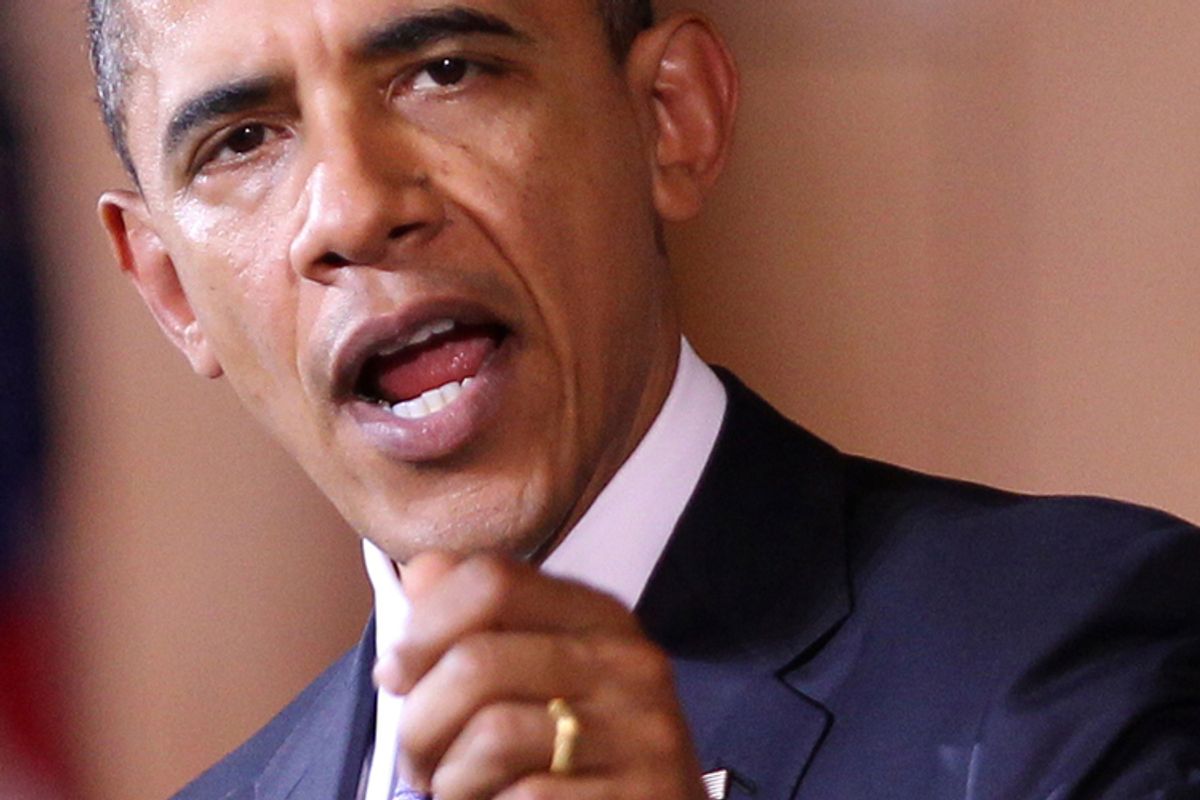This originally appeared at Robert Reich's blog
The President says a Republican proposal to extend the Bush tax cuts to everyone for two years is a “basis for conversation.” I hope this doesn’t mean another Obama cave-in.
Yes, the President needs to acknowledge the Republican sweep on Election Day. But he can do that by offering his own version of a compromise that’s both economically sensible and politically smart. Instead of limiting the extension to $250,000 of income (the bottom 98 percent of Americans), he should offer to extend it to all incomes under $500,000 (essentially the bottom 99 percent), for two years.
The economics are clear:
First, the top 1 percent spends a much smaller proportion of their income than everyone else, so there’s very little economic stimulus at these lofty heights.
On the other hand, giving the top 1 percent a two-year extension would cost the Treasury $130 billion over two years, thereby blowing a giant hole in efforts to get the deficit under control.
Alternatively, $130 billion would be enough to rehire every teacher, firefighter, and police officer laid off over the last two years and save the jobs of all of them now on the chopping block. Not only are these people critical to our security and the future of our children but, unlike the top 1 percent, they could be expected to spend all of their earnings and thereby stimulate the economy.
Conservative supply-siders who argue the top 1 percent will stop working as hard if they have to return to the 39 percent marginal rate of the Clinton years must be smoking something (probably an expensive grade).
Their incomes of the top are already soaring (Wall Street is reading a 5% boost in bonuses, executive salaries and perks are back on the trajectory they were on before the collapse, and the stock market is booming), so it’s hard to argue much hardship.
Besides, only earnings over $500,000 would be affected because -- remember -- we’re talking about the marginal tax rate.
In addition, the Clinton years weren’t exactly bad years, economically, for the top 1 percent.
Finally, the Bush tax cuts didn’t trickle down anyway. To the contrary, between 2001 and 2007, the median wage dropped. And Bush’s record on jobs was pitiful.
The politics are even clearer. Over the next two years, Obama must clarify for the nation whose side he’s on and whose side his Republican opponents are on. What better issue to begin with than this one?
The top 1 percent now takes in almost a quarter of all national income (up from 9 percent in the late 1970s), and its political power is evident in everything from hedge-fund and private-equity fund managers who can treat their incomes as capital gains (subject to a 15 percent tax) to multi-million dollar home interest deductions on executive mansions.
If the President can’t or won’t take a stand now -- when he still has a chance to prevail in the upcoming lame-duck Congress -- when will he ever?

Shares